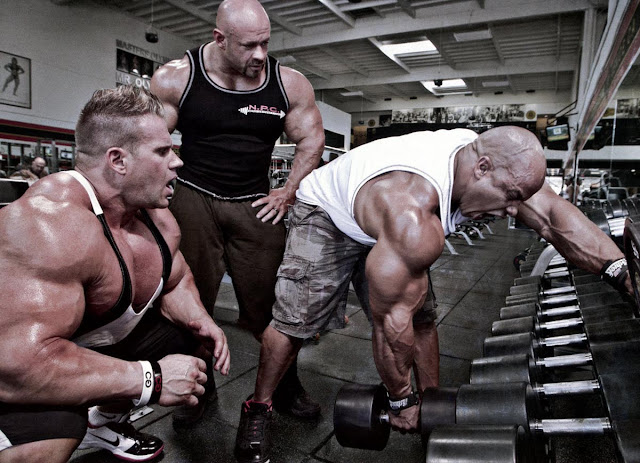Social Support and Bodybuilding: The Power of Connections in Achieving Success and Well-Being
01 MayBodybuilding is not just a solitary journey but a path that can be greatly influenced by the support and connections one has. The role of social support networks, including family, friends, and coaches, cannot be underestimated in the success and overall well-being of bodybuilding competitors. This article explores the significance of social support in the realm of bodybuilding, highlighting the benefits of having a strong support system and providing strategies for building and maintaining these networks.
Family plays a crucial role in providing emotional and practical support to bodybuilding competitors. Their unwavering encouragement, understanding of the demands of the sport, and willingness to accommodate the unique lifestyle requirements can significantly contribute to an athlete's success. A study by Pappas et al. (2014) found that family support positively influenced athletes' motivation, self-confidence, and overall well-being. Building open lines of communication, involving family members in training and nutrition plans, and expressing gratitude for their support can strengthen the bond and foster a positive environment.
Friends provide a vital support network for bodybuilders, offering companionship, motivation, and empathy. They can serve as workout partners, provide moral support during challenging times, and celebrate achievements together. Research by Harwood and Knight (2015) suggests that training with friends enhances adherence to exercise routines and promotes overall well-being. Actively seeking out like-minded individuals in fitness communities, participating in group workouts or classes, and engaging in social activities can foster friendships that provide both physical and emotional support throughout the bodybuilding journey.
Coaches and mentors in bodybuilding hold immense value, providing expert guidance, knowledge, and motivation to help athletes achieve their goals. Their role extends beyond technical expertise, as they offer emotional support, accountability, and tailored training programs. Research by Spink et al. (2020) emphasizes the positive influence of coaches on athletes' self-esteem, self-confidence, and performance. Seeking reputable coaches, maintaining open communication, and establishing a strong coach-athlete relationship based on trust and mutual respect can enhance the effectiveness of training and contribute to the overall well-being of the competitor.
Social support networks are essential pillars for bodybuilding competitors, facilitating their success and promoting overall well-being. The unwavering support of family, the camaraderie of friends, and the guidance of coaches can provide motivation, understanding, and practical assistance throughout the bodybuilding journey. Actively building and nurturing these relationships is crucial, involving open communication, expressing gratitude, and reciprocating support. By embracing the power of social support, bodybuilders can overcome challenges, stay motivated, and create a positive and fulfilling experience in their pursuit of excellence.
References:
1. Pappas, E., Cummings, N., Patsiaouras, A., Hatzigeorgiadis, A., & Karteroliotis, K. (2014). The Role of the Family Environment in Athletes' Psychological Functioning: A Review. Hellenic Journal of Psychology, 11(2), 176-194.
2. Harwood, C. G., & Knight, C. J. (2015). Social Support in Sport and Exercise: Its Role in Adaptation and Well-being. Journal of Applied Sport Psychology, 27(3), 329-345.
3. Spink, K. S., Gastin, P. B., & Leicht, A. S. (2020). Athlete Social Support, Mental Well-being, and Perceptions of the Coach-Athlete Relationship: A Narrative Review. Frontiers in Psychology, 11, 937





0 comments